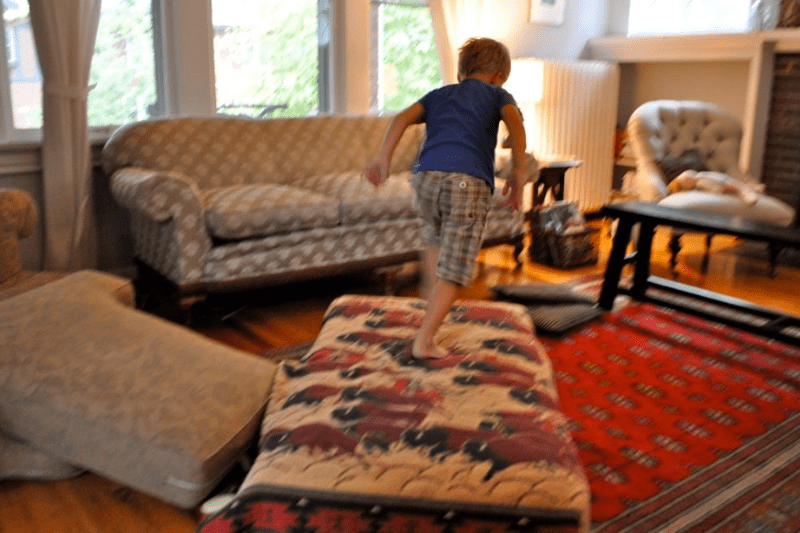Mobile Therapy: Making the Most of Speech & Occupational Therapy for Kids
We all want our child to thrive in every environment they encounter – at home, in preschool, and at school. Speech and occupational therapists play a crucial role by equipping children with valuable skills to confidently navigate these different settings. But what happens when those therapy sessions end?

Issue: Therapy Sessions Only Take Place Once a Week
Speech and Occupational Therapy sessions are fantastic for kids, but how can we ensure these skills become second nature in your child’s daily life, across different environments?
We understand. While therapy sessions offer focused learning, the real magic happens when children can apply these skills seamlessly into their everyday interactions.
Solution: Mobile Therapy & Daily Practice – A Powerful Combination!
Imagine having a therapist come directly to your child’s home, preschool, or school. This approach, known as mobile therapy, allows therapists to help your child build the skills they need within their natural environment.
Therapy delivered at home, preschool or school helps children to incorporate new skills into daily routines and play. When you, educators, and other caregivers get involved, you all become incredible therapy partners. This consistent practice not only reinforces what’s learned in therapy but also boosts your child’s confidence and independence.

Practical at home therapy ideas to get you started
Speech Therapy:
- Story Time Power Up!
During shared reading, pause and have your child fill in missing words, describe pictures, or retell the story in their own words. This strengthens vocabulary, comprehension, and communication skills in your home environment. - Sing it Out!
Songs are a fantastic way to target articulation, fluency, and even turn-taking skills. Make up silly songs together during playtime or add new words to familiar tunes at preschool. - Play Dates with a Purpose!
Encourage conversations during playdates. Help your child initiate interactions, ask questions, and share their toys, fostering stronger social connections with peers.
Occupational Therapy:
- Sensory Play Fun!
Create sensory bins filled with rice, beans, or play dough. This helps your child with sensory processing difficulties explore textures and develop fine motor skills, whether at home or in the classroom. - Obstacle Course Challenge!
Set up an obstacle course using pillows, blankets, and chairs in your living room or at school. This encourages gross motor skills, coordination, and planning abilities. - Dress for Success!
Let your child practice dressing independently as much as possible, whether it’s getting ready for school or putting on their pyjamas at home. This builds fine motor skills, self-confidence, and a sense of accomplishment.

Benefits for Everyone
By practicing the skills your child learns at therapy in various environments, your son or daughter will reap amazing benefits, but the positive impact extends far beyond them.
- Increased Social Confidence
When your child practices the skills they learn at speech or occupational therapy during play, they connect more effectively with peers and educators. This can lead to stronger friendships and a sense of belonging in all settings. - Reduced Frustration
When your child uses their new skills to communicate their needs and complete tasks independently, their frustration levels naturally decrease. This can result in a more positive and cooperative environment at home, preschool, and school. - Learning Success
Children who can focus, follow instructions, and participate actively are better equipped to learn and thrive academically across different educational environments. When they access mobile therapy support, they get the direct guidance they need to feel included and successful as they learn. - Shorter Therapy Sessions (Hurray for Busy Families!)
Consistent practice at home, school, and preschool, combined with mobile therapy, can shorten the overall duration of therapy, making it more accessible and affordable for your family. This is not only great for your busy schedule, but also for your budget!

Remember
- Keep it Fun!
Engaging activities spark enthusiasm. Let your child take the lead and explore their interests, whether at home, school, or during a therapy session. - Celebrate Every Step!
Acknowledge even the smallest improvements. Positive reinforcement keeps your child motivated and on track. - Teamwork Makes the Dream Work!
Communicate with your child’s speech or occupational therapist about the skills they’re working on. Together, you, educators, and therapists can create a seamless support system for your child’s progress at home, preschool, and school.
By partnering with your child’s therapist and incorporating these ideas, you’re not just practicing skills – you’re helping your child build the confidence and independence they need to shine brightly wherever they go! Consider mobile therapy as a way to seamlessly integrate therapy into your child’s life and empower everyone involved in their success.
Need a Mobile Speech or Occupational Therapist to Help Your Child?
In addition to in-clinic sessions at our practice at Brookvale, members of the Kids First paediatric therapy team provide mobile support to children who live or go to preschool or school in Sydney’s northern beaches.
Follow this link or contact our team today on 9938 5419 to discover how mobile therapy can support your child.


